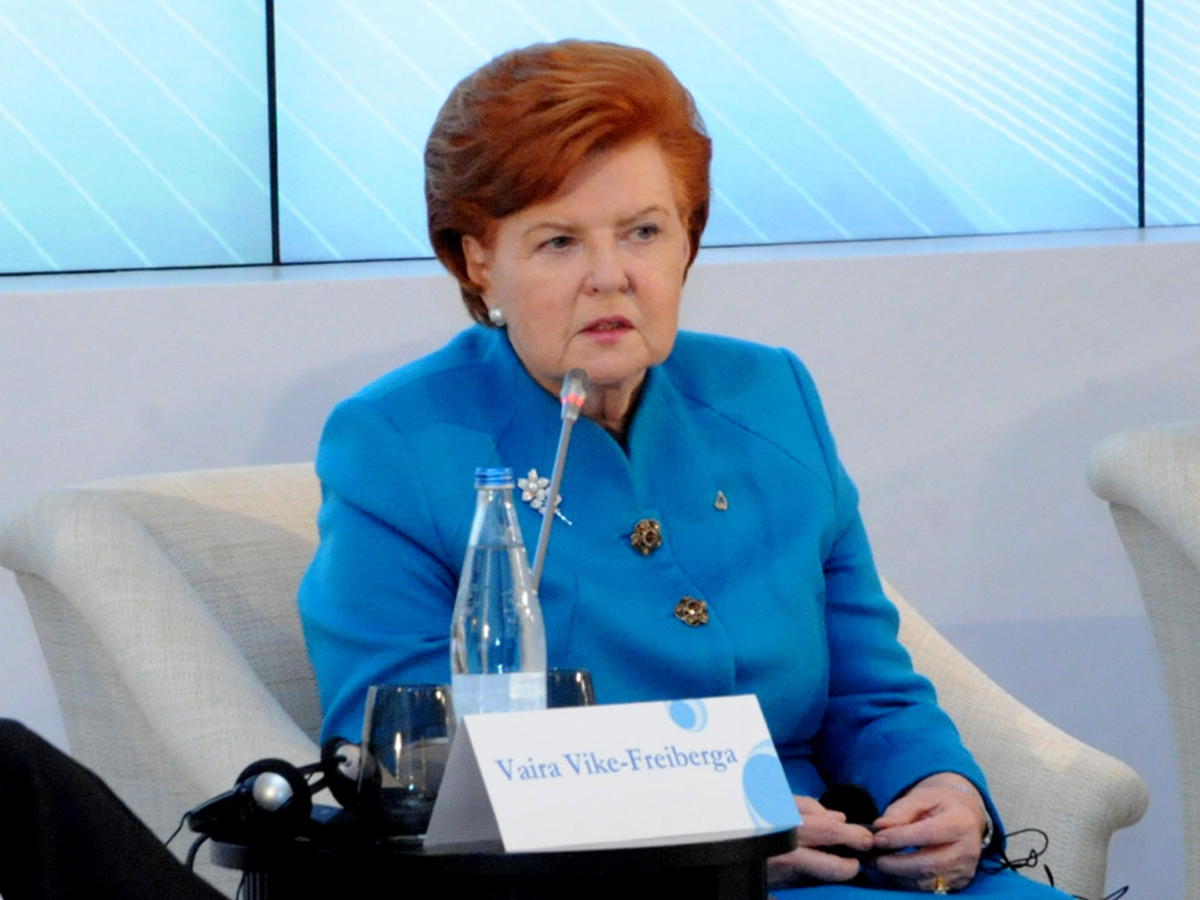Riga, Latvia, May 20
By Jamilya Aliyeva - Trend:
The position of the international community to resolve the "frozen conflicts" is very weak, Former President of Latvia Vaira Vike-Freiberga said.
"There is the OSCE Minsk Group, which was created to solve the Nagorno-Karabakh conflict after the occupation of Azerbaijani territories by Armenia during the time of gaining independence by these countries, but there has been no result of its activity so far," she told reporters during a conference of Eastern Partnership member countries in Riga.
She went on to add that there are countries that are involved in the settlement of this conflict, however, more than 20 years have passed, but the situation remains the same and there is absolutely no progress in its settlement
Also, no progress was reached in the settlement of the Transnistrian conflict and the conflict in Georgia, said Vike-Freiberga.
"I'm afraid that in 2015 the international community is not in the best shape for the settlement of "frozen" conflicts," she said.
The conflict between the two South Caucasus countries began in 1988 when Armenia made territorial claims against Azerbaijan. As a result of the ensuing war, in 1992 Armenian armed forces occupied 20 percent of Azerbaijan, including the Nagorno-Karabakh region and seven surrounding districts.
The two countries signed a ceasefire agreement in 1994. The co-chairs of the OSCE Minsk Group, Russia, France and the US are currently holding peace negotiations. Armenia has not yet implemented the UN Security Council's four resolutions on the liberation of the Nagorno-Karabakh and the surrounding regions.






